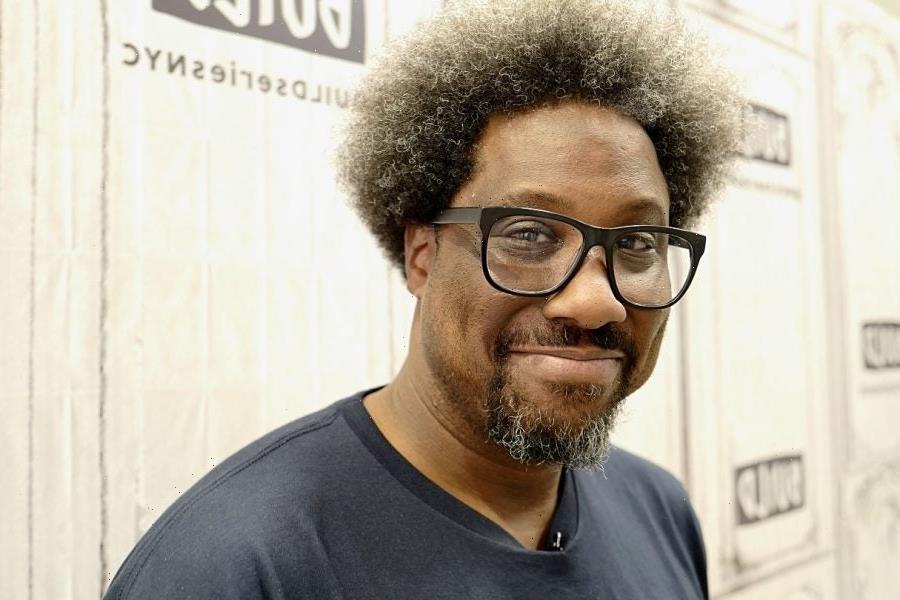It was 2014 when comedian Hannibal Burruss made a joke that unearthed nearly five decades worth of sexual assault allegations against cultural icon Bill Cosby. Since then, the nation has grappled with the discordant realities that Cosby was both a talented, groundbreaking entertainer and an alleged serial rapist.
Comedian, host and documentarian W. Kamau Bell explores these realities in a five-part documentary We Need To Talk About Cosby, currently streaming on Showtime. Bell sought to tell this story once Cosby has been convicted of indecent aggravated assault against Andrea Constand and sentenced to 3-10 years in prison for the 2004 incident in 2018. But in the middle of filming, in June 2021, Bell and his team learned that Cosby’s conviction was overturned and he was released.
“It was one of the most surreal experiences of my life,” Bell told ESSENCE. “I immediately felt all this sorrow for the survivors. Because none of us saw it coming.”
In fact, Bell said that if he had known Cosby would be released from prison he might not have embarked on the documentary at all. “It felt like his story was basically over,” Bell said. “It seemed like he was going to be [in prison] for the rest of his life or until he was very, very old. So it felt like this very complicated and necessary conversation that I believed–and other people believed–we needed to have about Bill Cosby and this was maybe the time to have it because there wasn’t going to be more to the story.” That wasn’t the case. Initially, Bell felt like the whole documentary might need to be scrapped. But ultimately, he realized, despite Cosby’s acquittal, the story was the same: the tracking of his career and the repeated allegations of sexual misconduct. Many may wonder why we need to even discuss Cosby’s accomplishments given the sexual assaults. But for Bell, who can’t remember a time in his life when Cosby wasn’t relevant, it’s about acknowledging key parts of Black American and entertainment history reflected in Cosby’s work–while simultaneously learning from the victims of his crimes. Bell holds a unique position being the person to tell this story, being that he shares so many identities with Cosby: man, comedian, and Black public figure in America. Still, initially, it didn’t occur to him that it was significant that this story be told from the lens of someone like him. “I was making a thing about my hero, trying to reckon with what I now believed about all the assaults and allegations,” Bell said. “I didn’t think it needs to be a Black man who does this until other people–specifically women told me– ‘It means something that you’re not waiting for a woman to do this work, that you’re not waiting for a survivor to do this work.’ They also knew that me being a man and a Black man, I’m going to see different things and highlight different things that other filmmakers wouldn’t do.” https://youtube.com/watch?v=qVr0xrvGK1Q%3Ffeature%3Doembed Yet, it’s not a task in which Bell necessarily takes pleasure. And the decision to speak out against Cosby does not come without its own costs. Days before the documentary premiered on Showtime, Cosby’s team released a statement calling the film, “a PR hack.” “That sh-t is hard,” Bell says of the message from a man he once considered his hero. There’s a particular collective shame Black folks carry when one of our own experiences a public fall from grace. And even in telling this story about Cosby, Bell wants people to know that there is more to his work than this. “I believe in telling positive Black stories too,” Bell says. “If anyone is coming to my work for the first time, it’s not all this. I want people to understand this story has to be told but there are other stories to tell about Black people that are not this painful.” If notions about what type of stories we tell and disparaging statements have weighed on Bell, he is adamant that it is nothing compared to what Cosby’s survivors–particularly his Black women survivors–have had to endure. “Every Black woman who comes forward is doing more emotional labor and experiencing more attacks than I see the white women experiencing,” Bell says. “As a white person, you don’t have the pain of feeling like you’re betraying your race if you talk. For every Black woman, there’s a different level of calculus that they have to do when they come forward that a white woman doesn’t have to do even though she’s still going to experience attacks. But she’s not going to be called a traitor to her race or be accused of taking down a Black man.” More than social implications of race or Cosby’s legacy, Bell says he hopes audiences ultimately walk away from the film with survivors in mind. “No matter what part of Bill Cosby’s story is the most meaningful or impactful to you, whether it’s what he contributed to the culture or learning about the assaults, what we can agree on is that we need to create a world that is more supportive of sexual assault survivors. So if they have that happen to them, they immediately know a place they can go for support, healing and justice. They feel invited to tell their stories because they know they will get help instead of being shamed and blamed and disbelieved. If we can acknowledge that our system and our institutions currently suck with issues of sexual assault, then we’re in the right space. If we don’t learn that from this space, all we’re doing is creating a space for people to prey on women.”
Source: Read Full Article
